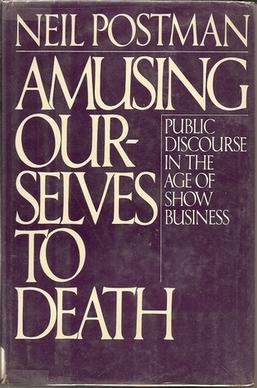 Just one generation after TV became omnipresent, our politics collapsed entirely and we elected a bad actor who played a sunny optimist to replace a serious person who dared warn us that we weren't going to like the ending if we kept up like we were going. Image via Wikipedia
Just one generation after TV became omnipresent, our politics collapsed entirely and we elected a bad actor who played a sunny optimist to replace a serious person who dared warn us that we weren't going to like the ending if we kept up like we were going. Image via Wikipedia
Less controversially, and even less categorically clear, is the research that links the rise in crime with the spread of television across the US, which was staggered over the 1940s and 1950s and thus offers the social scientist a rare opportunity to observe human behaviour with a "control" sample. Yes, for every extra year a young American was exposed to TV in his first 15 years, there is a 4 per cent rise in the number of property-related crimes later in life, and a 2 per cent rise in violent crime arrests. But the freakonomists are at a loss to say why this should be; the biggest effect is among those who watched TV from birth to age four – little of it violent. However, anyone who has a second look at the sadism, mutilation and torture see in the average Tom and Jerry cartoon might beg to differ.
UPDATE: Turns out the "Freakonomist" is really just a junk-scientist spewing nonsense about the greatest challenge we face.
![Reblog this post [with Zemanta]](http://img.zemanta.com/reblog_e.png?x-id=f6fb5804-82ed-4745-818e-b5b1abb5228a)





No comments:
Post a Comment